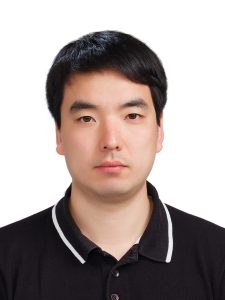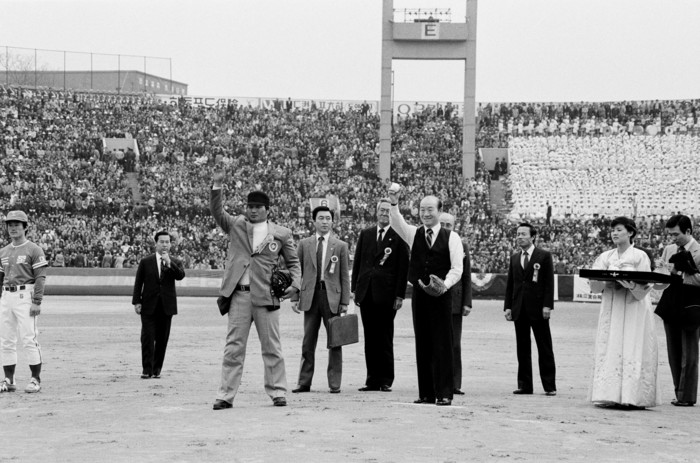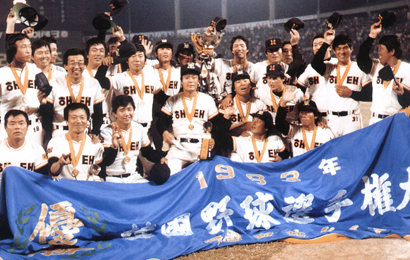Memo #399
By: Jinsung Kim – mitol8274 [at] gmail.com

The KBO (Korean Baseball Organization), South Korea’s professional baseball league, has grown both quantitatively and qualitatively since its establishment in 1982. Some 7 million domestic fans attended games in 2016, while the Korean national team’s victories at the 2008 Beijing Olympic Games and the 2015 WBSC Premier12 attracted the attention of baseball fans around the world. The KBO has steadily improved the quality of play and umpiring, as well as the overall fan experience over the decades. But both the government and the spectators initially viewed baseball essentially as a political tool or proxy in the early years of the KBO.
The government viewed baseball as an effective way to justify the legitimacy of the Fifth Republic (1980-1987) under Chun Doo-hwan. Officers hailing from the North and South Kyŏngsang provinces located in the southeastern part of Korea launched a military coup, and later massacred people in the city of Kwangju in South Chŏlla Province in the southwest region of the peninsula in May 1980. By creating a professional baseball league, the new regime sought to divert the public’s attention from politics. Thus, rather than market demand, it was a strategy of political expediency implemented by state officials that gave birth to the KBO.
For spectators in the Chŏlla provinces, baseball games were not just diversions but outlets for their resentment against the government that forced victims into silence after the massacre. The people of Chŏlla enthusiastically cheered for the Haitai Tigers (renamed Kia Tigers in 2001), the baseball team of the region, to express their sorrow. This team became a dynasty, winning the championship 9 times between 1983 and 1997. These victories by Haitai were seen as symbolic triumphs over the Chun Doo-hwan’s regime, whose cabinet was largely comprised of ministers from the Kyŏngsang provinces. In this sense, the baseball stadium in Kwangju acted as a place for political resistance against the authorities.
These days, the strong sense of regionalism in Korea has decreased. Nonetheless, the role of professional baseball teams as symbols of local identity continues. Interestingly, the golden age of the Haitai Tigers ended when President Kim Dae-jung, a political idol of Chŏlla Province, was elected president of the country in 1997. After some down years, the team won the championship trophy again in 2009 right after Kim’s death a few months earlier. Nobody can explain this odd coincidence, yet baseball was undeniably and inextricably tied to politics and regionalism in the 1980s.
About the Author:
Jinsung Kim is a PhD student in the Department of Asian Studies at the University of British Columbia. His research focuses on international relations in East Asia in the late 19th century.

President Chun Doo-hwan throwing the first pitch at the inaugural game of the KBO on March 27, 1982. (Source: Sagunin.com)

The Haitai Tigers became KBO champions for the first time in 1983. They would then go on to win 4 consecutive championship titles from 1986 to 1989. (Source: Kia Tigers)
Links
- Now I can say – The 3S policy of the Fifth Republic of Korea, A Documentary, MBC (Munhwa Broadcasting Corporation), 2005.5.22. (In Korean) 이제는 말할 수 있다 – 스포츠로 지배하라! – 5공 3S 정책, MBC, 2005.5.22 (5gong 3S cheongch’aek, Ijenŭn malhalsu itda)
- Talking about Baseball, Interviews with veteran baseball players, KBO (In Korean) 야구를 말하다, KBO (Yagu rŭl malhada)
- Jay. J. Coakley, Sport in Society: Issues & Controversies, (St. Louis: Mosby, 1986).
- Jae-Pil Ha, Karam Lee, and Gwang Ok, “From Development of Sport to Development through Sport: A Paradigm Shift for Sport Development in South Korea,” International Journal of the History of Sport 32, no. 10 (2015): 1262-1278.
- Kim Bang-Chool, “Professional Baseball in Korea: Origins, Causes, Consequences and Implications”, The International Journal of the History of Sport, Vol. 25, No. 3 (2008. 2).
- Lee Chongweon, “A Study on the Sport Policy of the Fifth Republic of the Republic of Korea” (PhD thesis, Seoul National University, 2002). (In Korean). 이종원, 「제5공화국의 스포츠 정책 연구」, 서울대학교 박사학위 논문, 2002 (“Che-5 konghwaguk ŭi sup’otsu chŏngch’aek yŏn’gu”).
Related Memos:
See our other memos on South Korea.